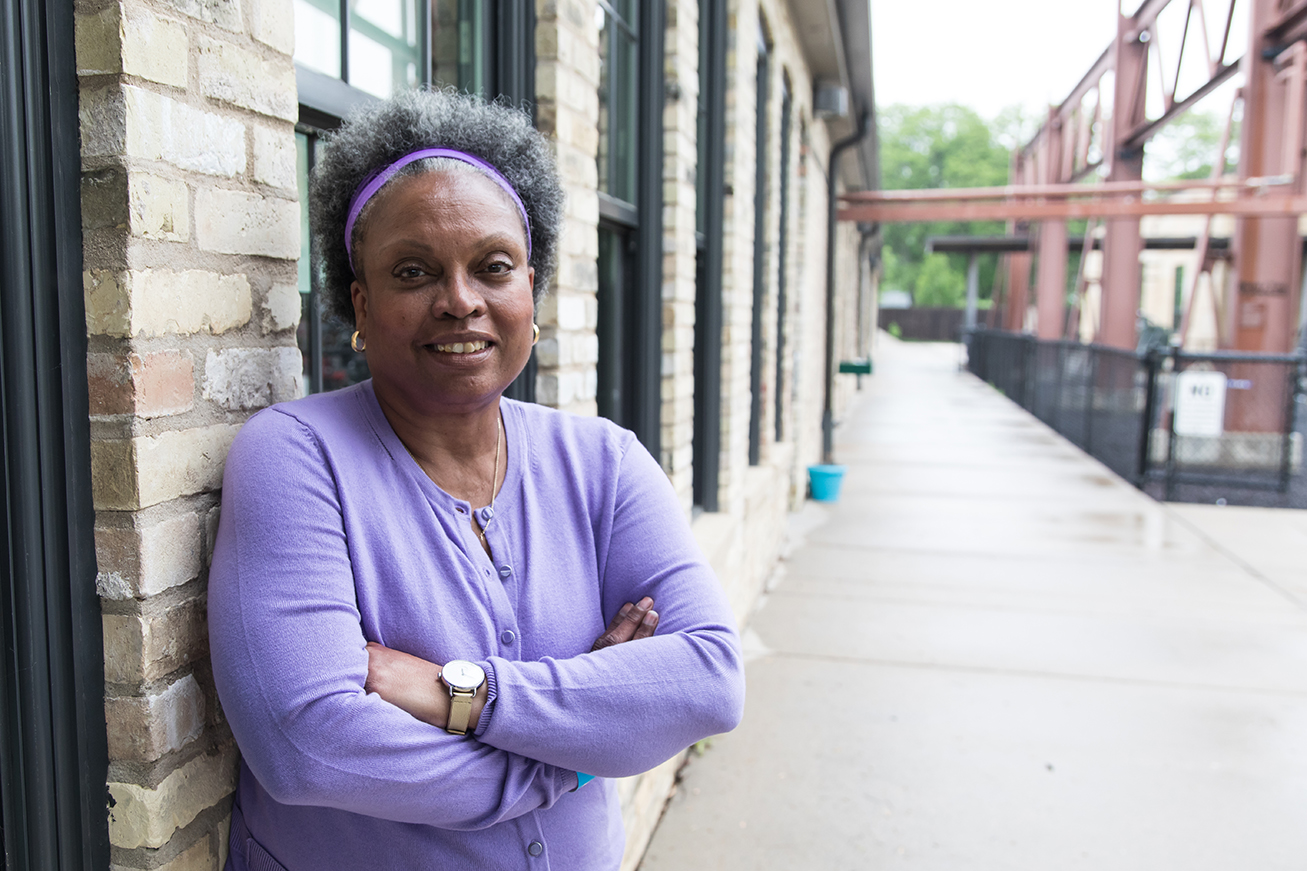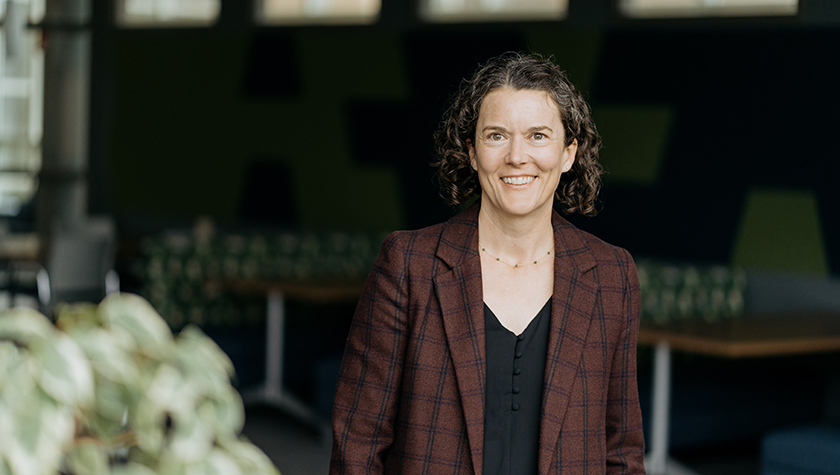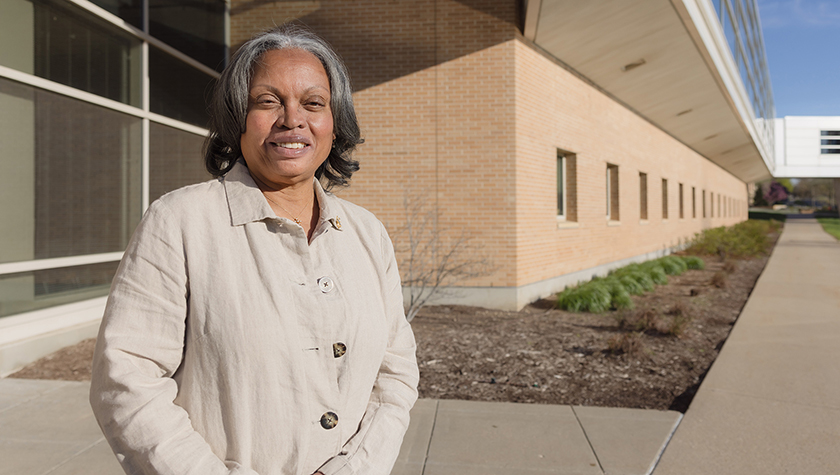
Professor Eva Vivian retires after two decades of championing health equity, mentoring students, and advancing diabetes care
By Logan Underwood
“It’s really important to be a lifelong learner,” says Eva Vivian, professor of pharmacy practice at the University of Wisconsin–Madison School of Pharmacy. “Whether it’s learning from a patient, a colleague, or a friend, we’re all in a continuous state of growth.”
After spending almost two decades teaching at the School of Pharmacy, Vivian is retiring. However, she sees this as another opportunity to grow and learn — not as an ending.
As a faculty member, Vivian has served as a pivotal disease-prevention advocate, diabetes researcher, and professor, which has earned her a host of accolades.
In 2015, Vivian was honored with UW–Madison’s Outstanding Women of Color Award, as well as the American Pharmacists Association’s (APhA) Wiederholt Prize in recognition of her research into improving refill adherence among Black patients with hypertension. She was also honored by the Wisconsin Institute for Health Aging (WIHA) with the 2021 Health Aging STAR Award for Health Equity for her work in providing resources and information on hypertension, diabetes, and COVID-19 in African American communities.
“She cares about the community, and she cares about the people in the community. She respects them and values their perspective, and that’s why she’s been so successful.”
—Beth Martin
Most recently, Vivian accepted the School of Pharmacy’s 2025 Teacher of the Year Award, selected by the Class of 2026, and 2025 Student Senate Award, marking Vivian’s third Teacher of the Year Award and second Student Senate Award.
For Vivian, who also holds a master’s in public health and a PhD in human ecology, the greatest reward of her career is being able to see the impact she’s made at the School of Pharmacy and in the community.
“She cares about the community, and she cares about the people in the community,” says Professor Beth Martin (BS ’90, MS ’03, PhD ’06), chair of the Pharmacy Practice and Translational Research Division. “She respects them and values their perspective, and that’s why she’s been so successful.”
A beacon of HOPE
Vivian grew up in Chicago and attended the University of Illinois’ College of Pharmacy. After completing her residencies at the University of California San Francisco and Veterans Affairs Medical Center San Diego, she became a professor at the Philadelphia College of Pharmacy, where she spent six years before getting a phone call that would change her professional trajectory. On the other end of the line was Bonnie Svarstad, then a professor of pharmacy at the UW–Madison School of Pharmacy.
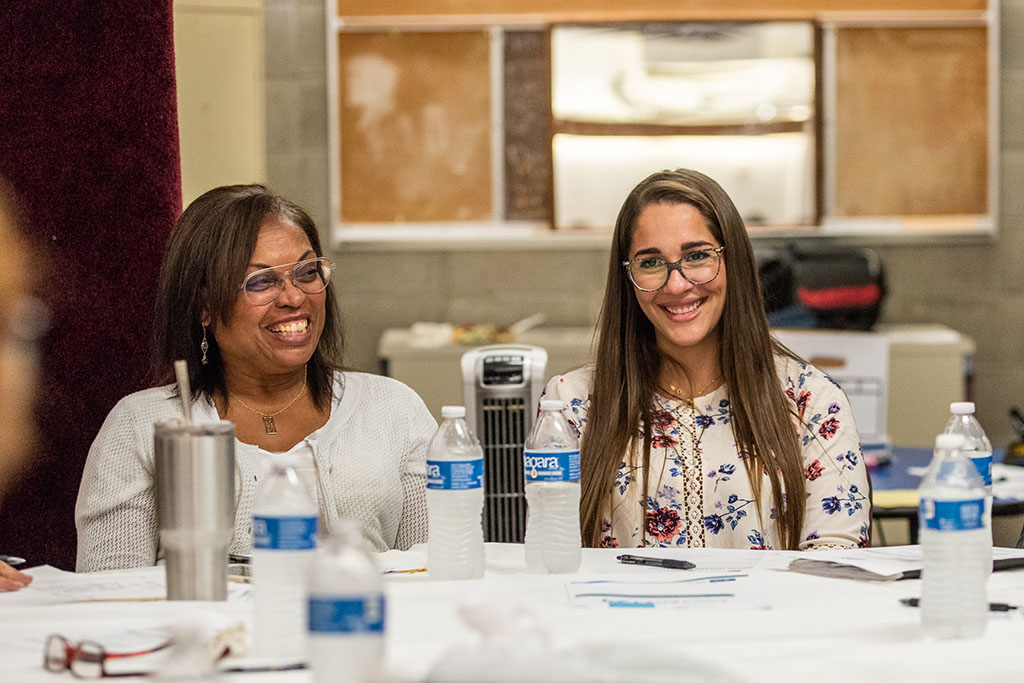
Svarstad was working on a research study about African American men with hypertension when she came across a recent publication by Vivian about the benefits of a pharmacist-managed hypertension clinic.
“When Bonnie read that article, she thought that it would be nice to work with me, so she reached out to me and invited me to Wisconsin to learn more about her research,” says Vivian. “As soon as I got here, they started recruiting me. The rest is history.”
Vivian joined the School of Pharmacy in 2006 and soon began not only collaborating with Svarstad but also expanding her own community-based participatory research program with a strong focus on preventing and managing diabetes.
In one of her earliest projects at the School, Vivian launched the Utilizing Novel Interventions to Prevent Diabetes In Youth (UNITY) study to assess possible interventions for combating high rates of type 2 diabetes in African American and Latinx youth.
During this process, Vivian learned that many Black children are cared for by grandparents, which led her to launch the HOPE (Healthy Outcomes through Peer Education) project in 2022, through a grant from the American Diabetes Association (ADA). This 48-week program included 71 grandmothers from Milwaukee and Madison, who learned how to manage stress, maintain a healthy diet, and become more physically active to prevent Type 2 diabetes.
“Now her impact is not just on a single person, because when I have multiple mentees, I’ll teach them the exact same thing. It has a snowball effect. Her impact does not end here.”
—Michael Nome
By working with grandmothers who are caregivers for their grandchildren, Vivian hopes to empower the grandmothers to pass down the HOPE program’s skills and lifestyle to their grandchildren, building a stronger foundation of health.
“The project was addressing a problem in the increase in diabetes for African American children, and that’s a big problem,” explains Michael Nome (PharmD ‘24). As a PharmD student, Nome worked closely with Vivian in directly interacting with the grandmothers of the HOPE study. “She always puts patients first in her thought processes, whatever it is that she’s doing. She taught me to put integrity above all else.”
Patient impact
Complementing her research, Vivian also maintained a practice as a certified diabetes educator for Access Community Health Centers, where she also served on the board of directors. She also served as the founding pharmacist for the St. Vincent de Paul Charitable Pharmacy.
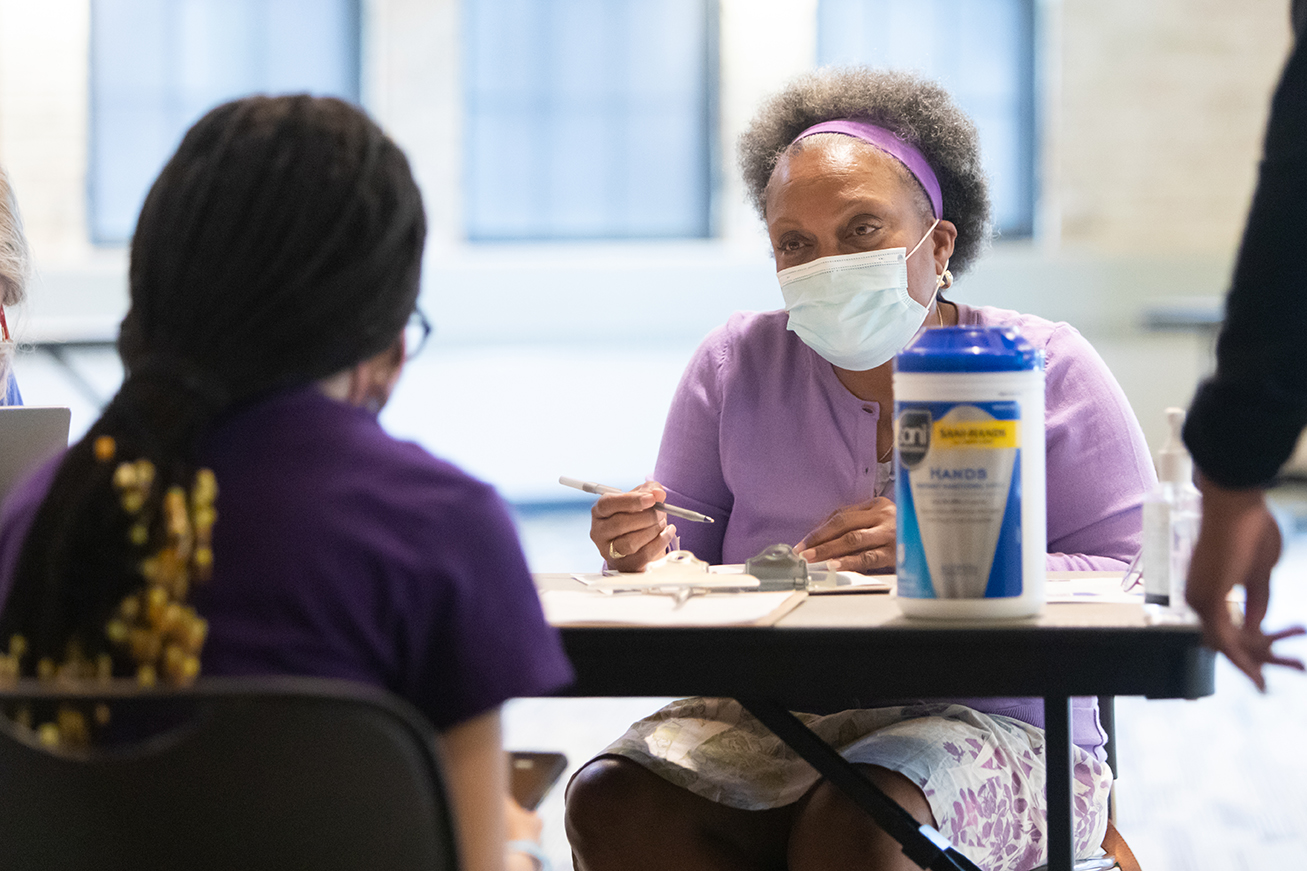
To better understand what her patients with diabetes go through, Vivian herself routinely wears a glucose monitor, despite not having diabetes herself. When interacting with patients, she can then draw on her own experiences to discern the challenges they pose.
Her commitment to serving patients with diabetes earned her a place on the Association of Diabetes Care and Education Specialist Board of Directors as well as the editorial board of the ADA’s Diabetes Care journal.
Vivian’s passion for helping patients prevent and manage chronic diseases transcends diabetes. She also works with communities to explore healthcare access for underserved communities dealing with hypertension and other chronic illnesses.
“She’s a very authentic and heartfelt person. She shows empathy, consideration, and compassion, and that’s what drives her community-based, participatory research,” says Martin.
Meaningful mentorship
While Vivian is passionate about her research and practice, teaching and connecting with students is the foundation of her time at the School.
“The student recognition awards are what I value most, because I really enjoy teaching,” Vivian says.
In one memorable moment, a PharmD student stopped her in the hallway to thank her for teaching her how to study for pharmacy school, setting her up for success in her future career.
“Tears came to my eyes because I didn’t realize at the time that what I was doing meant so much to her,” she says. “I really appreciate it when students come back and let me know that there was something I did that helped them.”
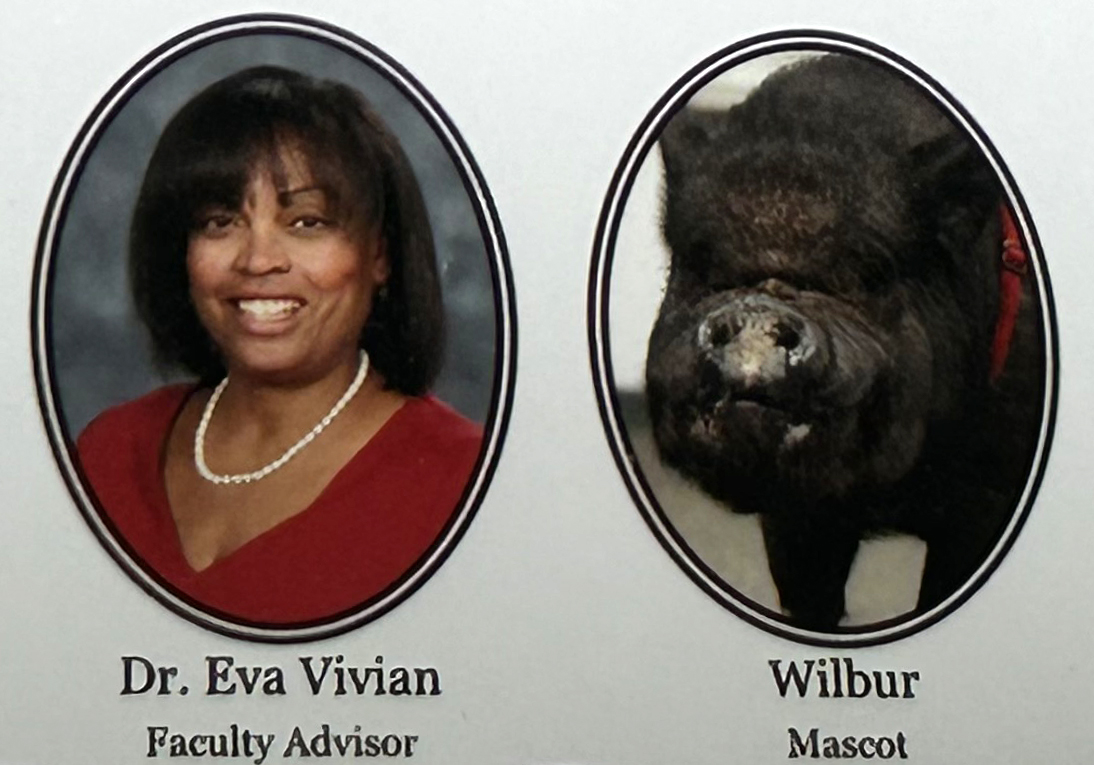
Vivian served as the faculty advisor for the Wisconsin Society of Pharmacy Students’ Operation Diabetes, working closely with PharmD students to plan community outreach. One of the many student pharmacists she worked with is Katie Freitag (PharmD ’24), who is currently a PGY1 resident at Children’s Wisconsin.
“I had the privilege of working closely with Dr. Vivian on Operation Diabetes and her HOPE research project,” says Frietag. “Throughout our time together, it became evident that she was incredibly passionate and dedicated to her work, teaching, and serving others. I learned many valuable lessons from her, particularly in understanding and addressing the unique challenges that patients in underserved communities may encounter. I am very grateful for all she has taught me and how she has contributed to my growth as a pharmacist.”
Vivian also served as a Pharmacy Families faculty mentor, facilitating connections and bonding for a group of PharmD students from all grade years, and as the faculty advisor for Kappa Psi, the oldest and largest professional pharmacy fraternity. She — and her potbelly pig Wilbur — have earned a place in the fraternity’s history.
Wilbur was elected mascot for the 2016–17 year. The fraternity invited Wilbur to campus for a formal photograph.
“Wilbur walked down the hallway of Rennebohm Hall like a celebrity as the students took photos of him,” Vivian says.
The fraternity composite photograph which includes Wilbur is still hanging in the Kappa Psi house.
Vivian’s students appreciate her willingness to build authentic connections and her engaging lectures, efforts to create a supportive classroom environment, and dedication to ensuring students’ success.
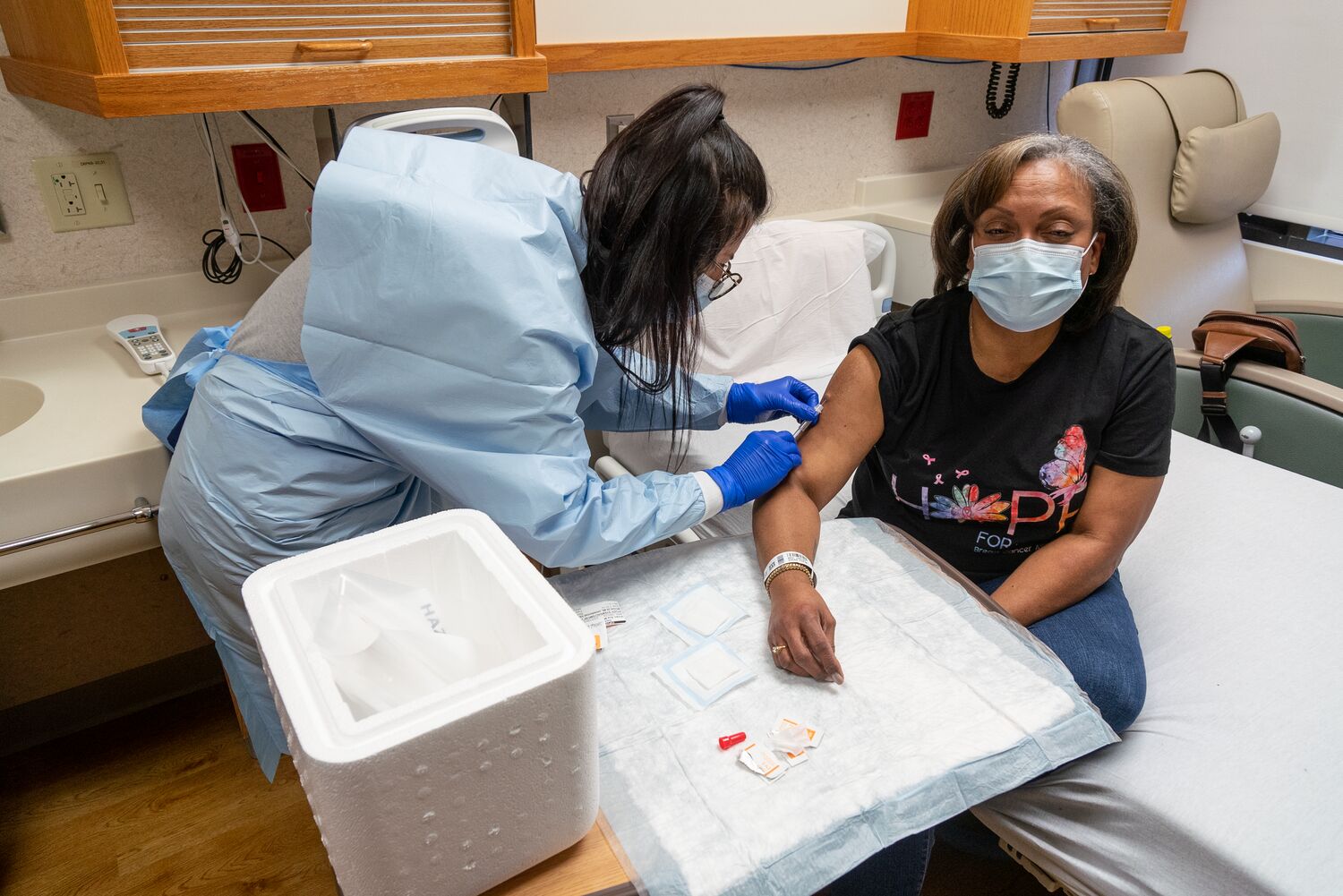
“From a mentoring standpoint, you see someone who will provide you a framework of what you need to do, and then gives you the grace to make a mistake and come back from it,” says Nome. “She also impressed upon me that if you see a problem in the world, no matter how big it is, if you’re determined to solve it, you can figure out what part of that problem you can take on and do your part.”
Nome, now a clinical science post-doctoral fellow at Takeda Pharmaceutical Company, uses the advice he learned from Vivian while working with his own mentees.
“Now her impact is not just on a single person, because when I have multiple mentees, I’ll teach them the exact same thing,” he says. “It has a snowball effect. Her impact does not end here.”
Expanding the impact
When thinking about the legacy she leaves at the School of Pharmacy, Vivian hopes it’s one of resilience.
In 2019, Vivian was diagnosed with breast cancer. Looking to fight the disease with every tool possible, Vivian qualified for a clinical trial at the UW Carbone Cancer Center and became the first patient in the nation to receive a breast cancer vaccine through the trial.
Receiving treatment during the last year of earning her PhD in human ecology, Vivian defended her dissertation while undergoing chemotherapy. Now, Vivian is completely cancer-free.
“I faced a lot of challenges during my time here at UW,” Vivian says. “I think I showed my colleagues, as well as students, that it’s important to never give up.”
While Vivian has sold her house in Madison and plans to spend the rest of her retirement in Chicago, Vivian knows that her work — whether inspiring students or conducting research — is not done. Vivian hopes to expand her diabetes outreach programs that she built in Madison and Milwaukee to Illinois. She also wants to continue working with and mentoring students.
“This is a good opportunity for me to train the younger generation on how to engage in this type of research,” Vivian says. “There are so many communities that need help.”
